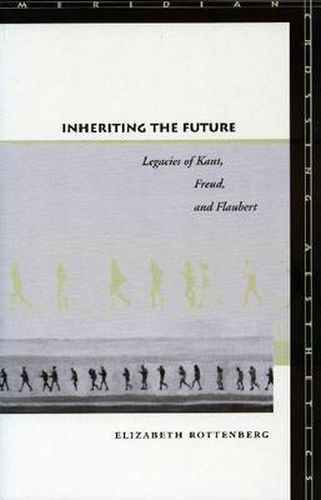Readings Newsletter
Become a Readings Member to make your shopping experience even easier.
Sign in or sign up for free!
You’re not far away from qualifying for FREE standard shipping within Australia
You’ve qualified for FREE standard shipping within Australia
The cart is loading…






This book explores several canonical works of philosophy, paychoanalysis, and literature. The surprising juxtaposition of Kant’s moral philosophy, Freud’s reflections on obsessional neurosis, and Flaubert’s peculiar late novel Bouvard et Pecuchet forms the basis of a compelling argument linking each of these central works around the problem of moral thought as it fundamentally determines the modern subject in relation to time. The book engages an area of emerging importance in contemporary critical thought, the problem of ethics or otherness as a crucial factor at play in speculative and literary works. The readings in this book provide insight into the ways in which three fundamental philosophical, psychoanalytic, and literary texts can be reread in light of their confrontation with a seemingly inhuman force at the heart of the foundation of the human subject.
$9.00 standard shipping within Australia
FREE standard shipping within Australia for orders over $100.00
Express & International shipping calculated at checkout
This book explores several canonical works of philosophy, paychoanalysis, and literature. The surprising juxtaposition of Kant’s moral philosophy, Freud’s reflections on obsessional neurosis, and Flaubert’s peculiar late novel Bouvard et Pecuchet forms the basis of a compelling argument linking each of these central works around the problem of moral thought as it fundamentally determines the modern subject in relation to time. The book engages an area of emerging importance in contemporary critical thought, the problem of ethics or otherness as a crucial factor at play in speculative and literary works. The readings in this book provide insight into the ways in which three fundamental philosophical, psychoanalytic, and literary texts can be reread in light of their confrontation with a seemingly inhuman force at the heart of the foundation of the human subject.